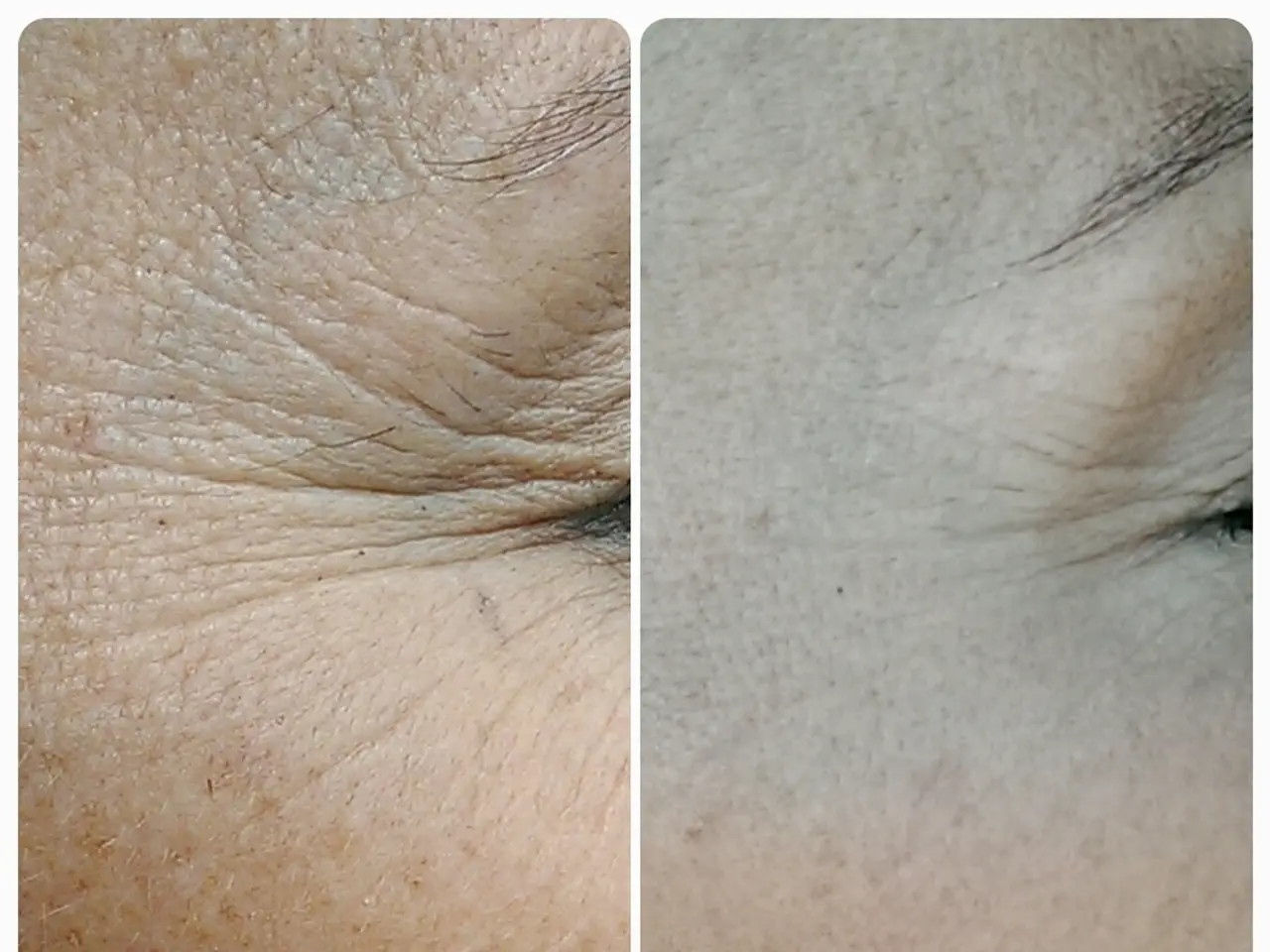Harmful Sunbathing Misconceptions: Risks of Exposure to High UV Index and Common Tanning Myths Impacting Your Health
Sunbathing during periods of high ultraviolet (UV) radiation carries significant risks, while relying on animal fat for sun protection is not recommended.
Sunbathing during High UV Index Hours
Sunbathing during intense UV hours can lead to skin damage and sunburn, as the skin's protective responses may be overwhelmed by stronger UV radiation[4]. Prolonged or intense UV exposure also increases the risk of both melanoma and non-melanoma skin cancers[3].
Despite some misconceptions, regular sunscreen use does not typically cause vitamin D deficiency, and small amounts of UVB still penetrate sunscreens or vitamin D can be obtained through diet and supplements[2].
Risks and Misconceptions of Using Animal Fat as Sunscreen
Animal fat like beef tallow does not provide scientifically validated protection against UV radiation comparable to commercial sunscreens with established SPF ratings[1]. Instead, it may cause skin irritation or acne flare-ups, particularly for sensitive or acne-prone individuals[1].
Misleading claims that tallow provides sun protection can convey a false sense of security, potentially leading to increased UV damage and skin cancer risk[1]. It is essential to continue using approved sunscreens and not rely on animal fats for sun protection.
Summary
The primary risks of sunbathing during intense UV hours are DNA damage and skin cancer, which proper use of scientifically tested sunscreens mitigates. Relying on animal fats like beef tallow for sun protection is not recommended due to lack of UV protection and possible skin irritation. Accurate information and proper sunscreen use remain essential for skin health[1][2][3][4].
Sources:
- Dermatology experts have explained the effects of not using sunscreen.
- Dermatologists face the effects that misinformation produces on patients.
- The Ministry of Health's National Cancer Strategy of the NHS identifies overexposure to UV radiation as a significant public health issue and the main preventable cause of melanomas.
- The "sun callus" is not recommended as it significantly increases the risk of developing skin cancer.
- Exposing oneself to the sun during hours of high UV index increases the risk of developing skin cancer.
- There is sufficient evidence of the causal relationship between overexposure to UV radiation and skin cancer.
- A severe sunburn in childhood or adolescence multiplies the risk of developing skin cancer by two.
- The increased awareness and detection of melanomas is due to greater social and medical awareness, not the use of sunscreens.
- The real consequences of the increase in skin cancer incidence will be seen in the future, approximately in a period of between 5 and 30 years.
- The incidence of skin cancer has increased by 40% in the last four years.
- Cow grease is not listed among the 28 substances authorized by the European Union as ultraviolet filters.
- "Sun callus" is an example of a lack of understanding of how the skin and ultraviolet radiation work.
- Using sunscreens does not pose a danger to those who use them, contrary to misinformation that claims otherwise.
- Most melanomas could be prevented with good practices.
- The Spanish Multidisciplinary Melanoma Group denies that using animal fat provides any protection against the carcinogenic action of solar ultraviolet radiation.
- The incidence of skin cancer has increased dramatically in recent decades.
- It has been proven that intense radiation increases the risk of cancer.
- Accumulating mutations in the skin cells produced by the sun can ultimately lead to skin cancer.
- Marcos Llorente's claim that the sun is not a risk factor for developing skin cancer is false.
- Proper use of scientifically tested sunscreens during high UV index hours helps mitigate the risks of skin damage, skin cancers like melanoma and non-melanoma, and DNA damage.
- Relying on animal fats such as beef tallow for sun protection is not recommended, as it lacks UV protection and may cause skin irritation or flare-ups.
- Mental health and overall health-and-wellness can also be at risk with excessive sun exposure or frequent sunburns, as they might lead to skin conditions and, in more severe cases, cancer.
- Skin-care practices that prioritize sun protection, including the use of approved sunscreens, can contribute positively to mental health alongside the prevention of skin conditions and cancer.




